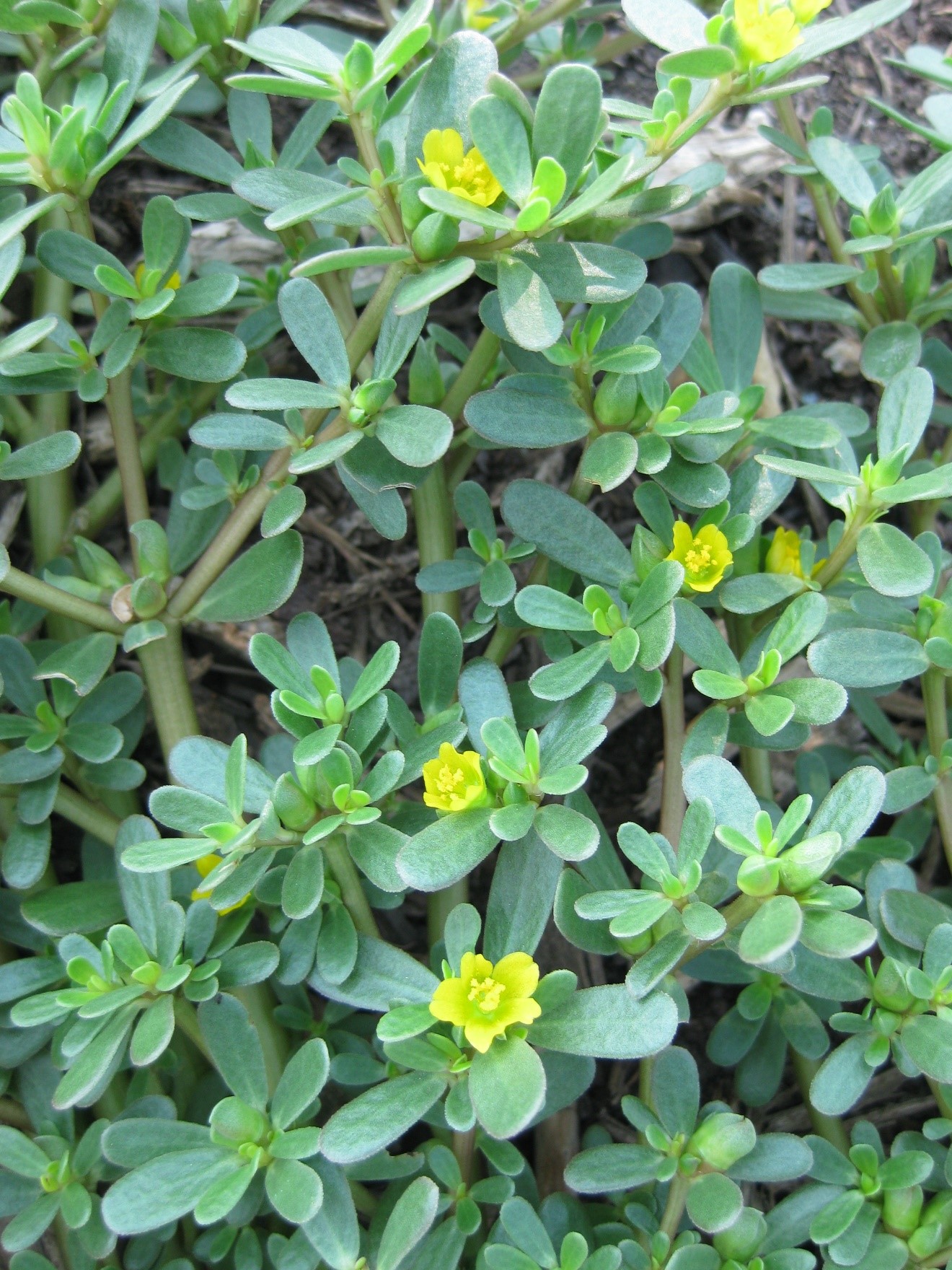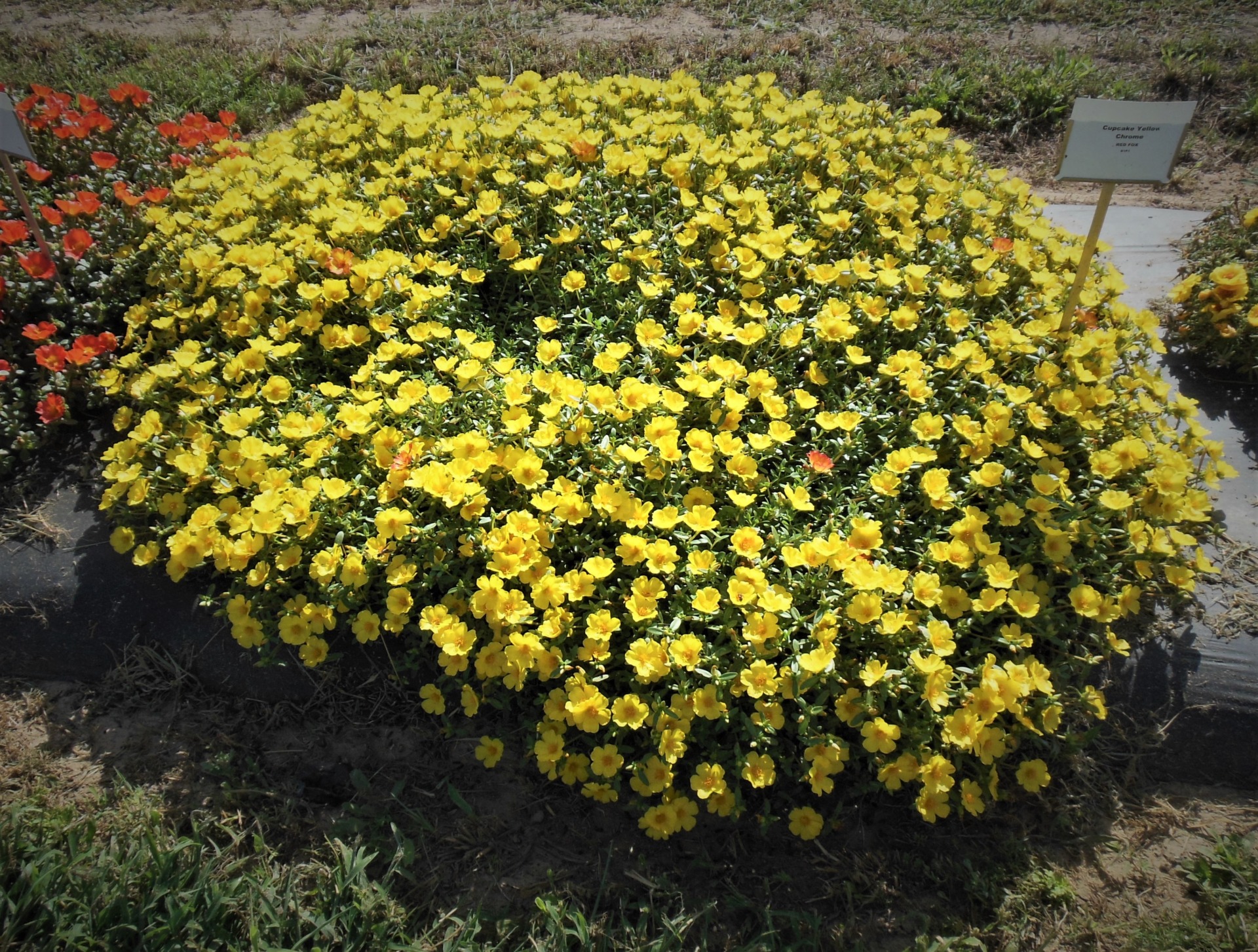
Purslane Dinner or “Dammit!?” Rotary Botanical Gardens
Portulaca umbraticola and Portulaca grandiflora are the ornamental purslanes you see hanging in baskets at the nurseries. There are dozens of varieties with bright colorful blooms and the benefit of being a drought-friendly plant. Ornamental purslane produces flowers all summer and into fall in warmer climates.

Pink Purslane
Plant Care and Tips Shade Plants Small Space Gardening Rooftop/Terrace Gardening More Than Gardening Best and Top of Gardening Rooftop/Terrace Gardening Growing Trees and Shrubs With flowers in shades of pink, white, orange, yellow, red, or bi-colors and shapes of cups, roses, and stars, Purslane flowers can be delightful additions gardens.

All About Purslane
Purslane, often called Portulaca, is a drought tolerant flowering plant that is often grown as a low maintenance annual. The low growing plant can be a spiller in containers, or grows as a groundcover in the garden. Shipping Time Growing Zone Light Exposure Mature Spread Mature Height Flower Color Tolerates Uses Growth Habit Foliage Type

portulaca/purslane "Cinderella" Beautiful flowers, Unusual flowers, Amazing flowers
Below are photos of terry purslane varieties and their description: One of these varieties is "Orange". Low-growing (10-12 cm) plant with a highly branched stem. The flowers of this purslane variety are large, up to 5 cm in diameter, bright orange in color, open only in sunny weather. Variety "Peacock".

Common Purslane Fairy garden plants, Miniature fairy gardens, Flower pots
Purslane is a carpet annual plant that attracts, first of all, with its flowers - single, rather large (from 3 to 6 cm in diameter), they are simple, double and semi-double, color - white, orange, yellow, cream, pink, cherry and pinkish red. Flowers are located at the ends of the stem. Flowering lasts only one day - having blossomed in.

Purslane Health Benefits Of This Edible “Weed”
Flowers for Florida Purslane (Portulaca oleracea) Purslane Plant Features Hot, dry conditions are no match for purslane. This vigorous, low-growing annual flower thrives when the weather heats up and will slowly carpet a bed, border, or container with pretty succulent foliage and bright yellow-, orange-, or rose-, or white-colored blooms.

Purslane Flowers, Plants
Scarlett Yellow Watermelon Purslane Purslane produces lovely brightly colored blooms amidst its foliage that grows and trails gracefully over the edges of borders, baskets, containers and rock ledges. Purslane is a heat-lover and sun-worshipper. It is also drought resistant which makes it a great choice for late Spring, Summer and Fall weather.

Purslane Plant How To Get Rid Of Purslane
Purslane is used in many cuisines around the world, especially in salads, soups, stews, and tomato sauces. Grows up to 3 in. tall (7 cm) and 18 in. wide (45 cm). This plant self-seeds readily. Thrives in most well-drained soils in full sun to light shade. Although it prefers regular water, it can tolerate drought.

c2018 June 20, Purslane Plants Purslane plant, Plants, Flower garden
Sesuvium portulacastrum (Sea Purslane) is a fleshy prostrate evergreen perennial forming a mat of smooth, trailing, reddish-green stems that branch regularly. They are clothed with fleshy, elliptic-ovate, succulent leaves which turn red or yellow with age or when exposed to full sun. Small showy pink flowers are borne more or less continually.

Purslane Flowers Purslane flowers, Different plants, Plants
Purslane is a succulent annual trailing plant that grows in many countries because it thrives in poor soil. It can be eaten as a cooked vegetable and is great to use in salads, soups, stews or any dish you wish to sprinkle it over. It is also antibacterial, antiscorbutic, depurative, diuretic and febrifuge.

Purslane adds color that can take the Texas heat AgriLife Today
Purslane, Portulaca oleracea, is an edible, leafy, frost-tender plant widely used as an herb and salad vegetable. The fleshy reddish stems are densely clothed with lobed leaves that are either green or golden in colour, depending on the variety, and grow to 15-20cm high. Purslane grows quickly from seed and leaves are ready to pick in 6-8 weeks.

Stripe, streak, splash, broken colors purslane in the Purslane and Portulaca forum
Also known as pigweed, purslane is a prized vegetable in many cultural traditions, and is known more widely as verdolagas in Spanish. HOW TO IDENTIFY PURSLANE The first rule of foraging is to ALWAYS consult a good field guide before picking any wild food. Check out some of the best foraging books I've found.

Flowering Purslane, Pussley Royalty Free Stock Image Image 35343516
Gardening Flowers Here's Why I Buy an Ornamental Purslane Plant Every Summer No green thumb required. By Jenna Sims Updated on June 29, 2021 My mom always has an abundance of flowers on her deck and in her yard that grow and bloom all summer long.

500 Mixed Color Moss rose Purslane Double Flower Seeds for planting (Portulaca grandiflora
Getting Acquainted With Purslane. The binomial name for purslane is Portulaca oleracea.Portulaca is Latin, coming from portula, which means "gate," in reference to the gate-like covering of the seed capsule.Oleracea is also Latin and means "kitchen vegetable.". The Spanish name for purslane is verdolaga, while another English name for it is "pigweed.".

Purslane Edible Weeds Fiesta Omaha Organics Turf Care
Purslane plants are prolific bloomers, forming thick, dense mats of foliage studded with bright jewels of color! These succulents have wonderful flowers that come in pretty shades of white, pink, red, orange, yellow or are bi-colored. Purslane flowers can be open saucer, cup-shaped, or rose-like, with single, semi-double, and fully double types!

Purslane Seeds Home Depot
The flowers bloom from summer to frost and are available in double, semi-double, or single forms in colors like purple, lavender, magenta, fuchsia, red, orange, yellow, peach, pink, and white.The mid-green, fleshy, cylindrical leaves (up to 1″ long) appear in groups along the reddish stems.